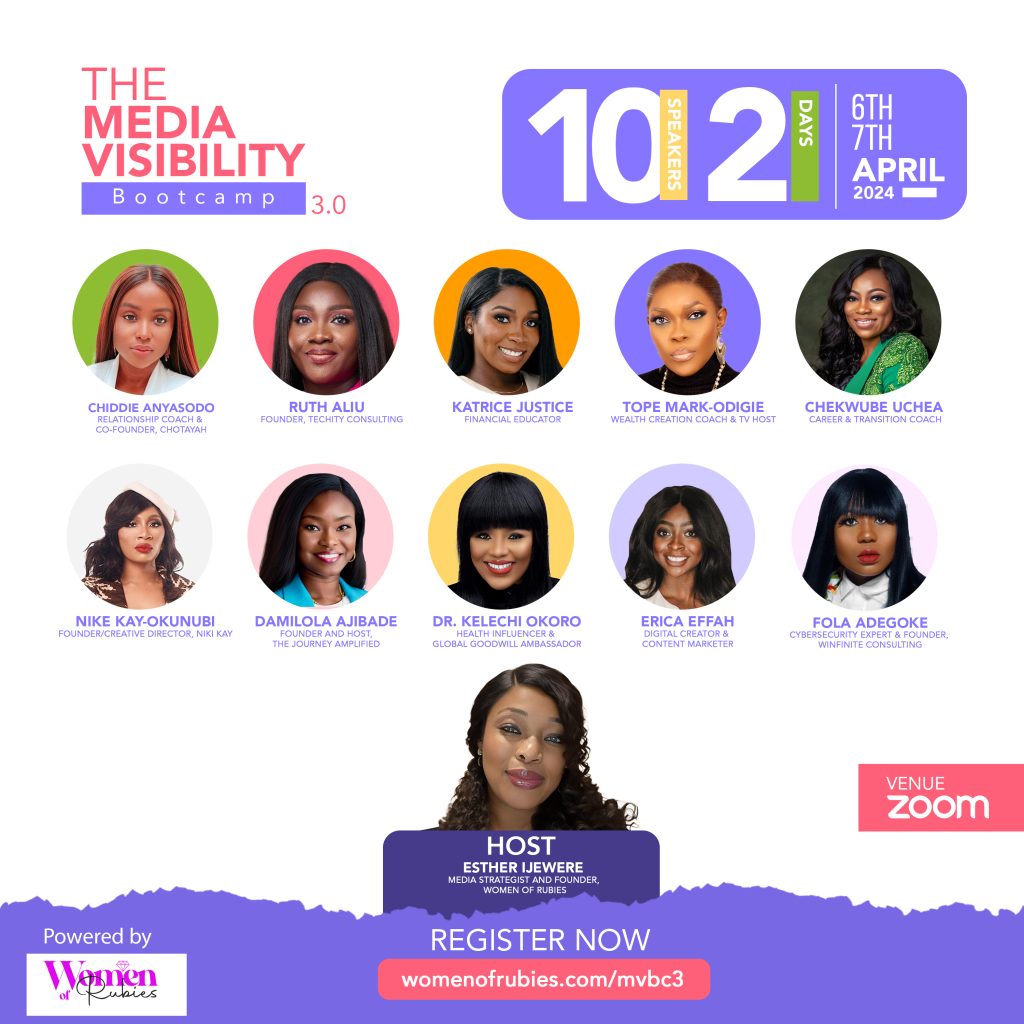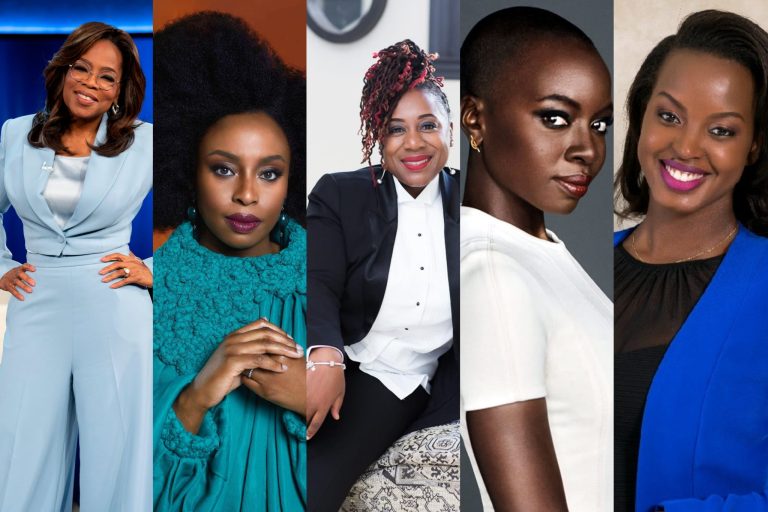In a world where media visibility holds immense power, Black women are rising to the forefront, shaping narratives, and leaving an indelible mark on the global stage. From the USA, Ghana, Nigeria, Kenya, Zimbabwe and Uganda to Canada, these remarkable women have leveraged their platforms to sustain their brands while inspiring countless others along the way. Let’s celebrate their achievements and the impact they’ve made across continents.
Oprah Winfrey (United States)
A pioneer in media and philanthropy, Oprah Winfrey‘s influence knows no bounds. From her groundbreaking talk show to her multimedia empire, Oprah has used her platform to uplift and empower millions worldwide. Her commitment to authenticity, empathy, and social change has cemented her as one of the most influential figures in modern media history.
Chimamanda Ngozi Adichie (Nigeria)
Renowned for her thought-provoking writing, Chimamanda Ngozi Adichie has become a literary icon. Her novels, including “Half of a Yellow Sun” and “Americanah,” explore themes of identity, feminism, and cultural heritage. Through her TED Talks and essays, Adichie continues to spark vital conversations on race, gender, and representation.
Naomi Osaka (Japan/Haiti)
With her exceptional talent and unwavering advocacy, Naomi Osaka has transcended the world of tennis. Born in Japan to a Haitian father, Osaka has used her platform to amplify important issues, from racial injustice to mental health awareness. Her courage and resilience inspire a new generation of athletes and activists alike.
Danai Gurira (Zimbabwe/United States)
Best known for her roles on stage and screen, Danai Gurira is a force to be reckoned with. From her portrayal of Michonne in “The Walking Dead” to her award-winning play “Eclipsed,” Gurira’s work highlights diverse narratives and complex characters. As a playwright, actress, and activist, she continues to break barriers and inspire audiences worldwide.
Thando Hopa (South Africa)
Thando Hopa‘s presence in the fashion industry is both groundbreaking and inspiring. As the first woman with albinism to grace the cover of Vogue, Hopa challenges beauty standards and promotes inclusivity. Her work as a model and lawyer advocates for representation and diversity, empowering others to embrace their uniqueness.
Joselyn Dumas (Ghana)
Joselyn Dumas has made a significant impact on Ghana’s entertainment industry through her versatility as an actress, TV host, and media personality. With appearances in numerous Ghanaian and Nollywood films, as well as hosting popular television programs, Dumas has maintained a strong presence in the media landscape. Her authenticity, charisma, and dedication to her craft have earned her a loyal following and established her as a prominent figure in Ghanaian media.
Leïla Slimani (France/Morocco)
Leïla Slimani’s impact on global literature cannot be overstated. The French-Moroccan author has garnered international acclaim for her thought-provoking novels exploring social and cultural issues. Slimani’s work challenges conventions and pushes boundaries, sparking essential conversations about race, class, and gender dynamics in contemporary society.
Caroline Mutoko (Kenya)
Caroline Mutoko is a prominent media personality in Kenya, known for her work as a radio presenter, TV host, and social commentator. With her bold and outspoken style, Mutoko has sustained her brand through consistent visibility in the media landscape. She has used her platform to advocate for social issues, challenge stereotypes, and empower women in Kenya. Mutoko’s influence extends beyond traditional media, as she is also active on social media platforms, where she engages with her audience on a wide range of topics. Her impactful presence in Kenyan media has earned her recognition and respect as a leading voice in the country.
Trey Anthony (Canada)
Playwright, author, and television producer Trey Anthony is a trailblazer in Canadian media. Best known for her groundbreaking play “da Kink in my Hair” and her work on the television series “Da Kink in my Hair” and “How Black Mothers Say I Love You,” Anthony’s storytelling celebrates the complexities of Black Canadian identity. Her contributions to Canadian theatre and television have paved the way for greater diversity and representation in media.
Flavia Tumusiime (Uganda)
Flavia Tumusiime is a prominent media personality in Uganda, known for her work as a radio presenter, TV host, actress, and entrepreneur. With her engaging personality and versatile talent, Tumusiime has sustained her brand through consistent visibility in the media industry. She has hosted various popular TV and radio shows, showcasing her skills as a presenter and entertainer. Additionally, Tumusiime is actively involved in entrepreneurship, with ventures in the fashion and beauty industry. Her influence extends beyond media, as she also uses her platform to advocate for social causes and empower youth in Uganda. Tumusiime’s dedication to her craft and her commitment to making a positive impact have earned her recognition and admiration in her home country and beyond.
These ten Black women from diverse backgrounds and disciplines exemplify the transformative power of media visibility in sustaining personal and professional brands. Through their creativity, resilience, and unwavering dedication to their craft, they continue to inspire and empower others to make their voices heard on the world stage.

In conclusion, the stories of these remarkable women underscore the power of media visibility in shaping personal brands and driving positive change. At Women of Rubies, we recognize this potential. Join our upcoming media visibility bootcamp to learn how to leverage media platforms effectively and amplify your impact. Register here and shape the future with us.
Let us celebrate and uplift these trailblazers as they pave the way for greater representation, diversity, and inclusivity in media and beyond.
With love and solidarity,




